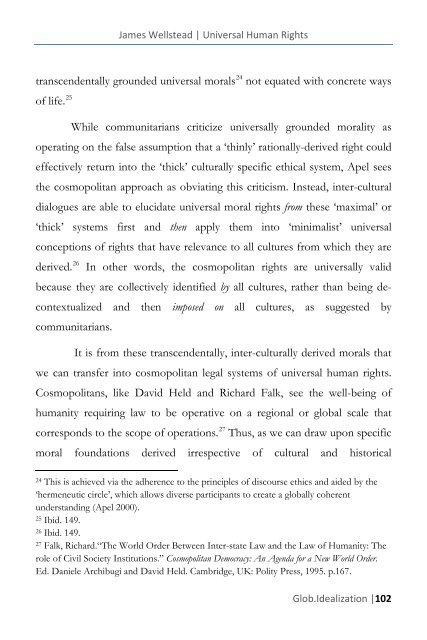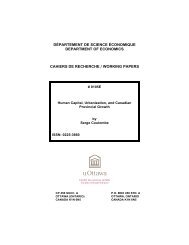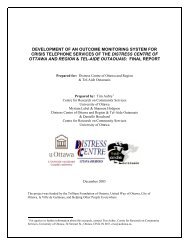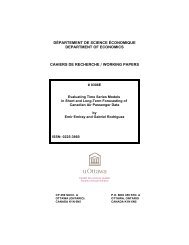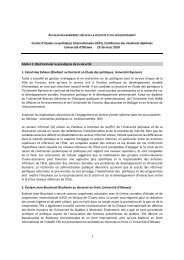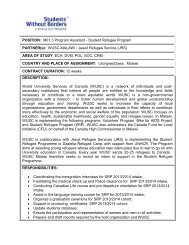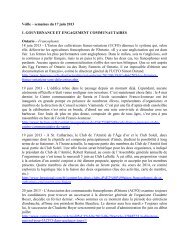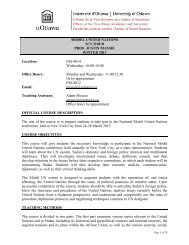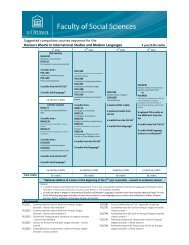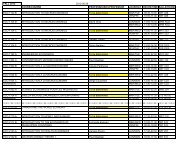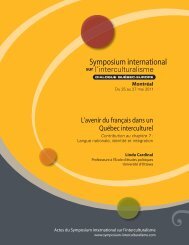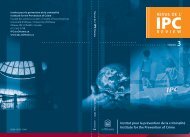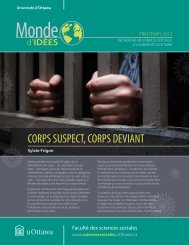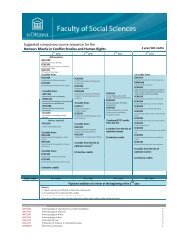GLOB.IDEALIZATION MOND.IDÉALISATION - Faculty of Social ...
GLOB.IDEALIZATION MOND.IDÉALISATION - Faculty of Social ...
GLOB.IDEALIZATION MOND.IDÉALISATION - Faculty of Social ...
Create successful ePaper yourself
Turn your PDF publications into a flip-book with our unique Google optimized e-Paper software.
James Wellstead | Universal Human Rights<br />
transcendentally grounded universal morals 24 not equated with concrete ways<br />
<strong>of</strong> life. 25<br />
While communitarians criticize universally grounded morality as<br />
operating on the false assumption that a ‘thinly’ rationally-derived right could<br />
effectively return into the ‘thick’ culturally specific ethical system, Apel sees<br />
the cosmopolitan approach as obviating this criticism. Instead, inter-cultural<br />
dialogues are able to elucidate universal moral rights from these ‘maximal’ or<br />
‘thick’ systems first and then apply them into ‘minimalist’ universal<br />
conceptions <strong>of</strong> rights that have relevance to all cultures from which they are<br />
26<br />
derived. In other words, the cosmopolitan rights are universally valid<br />
because they are collectively identified by all cultures, rather than being decontextualized<br />
and then imposed on all cultures, as suggested by<br />
communitarians.<br />
It is from these transcendentally, inter-culturally derived morals that<br />
we can transfer into cosmopolitan legal systems <strong>of</strong> universal human rights.<br />
Cosmopolitans, like David Held and Richard Falk, see the well-being <strong>of</strong><br />
humanity requiring law to be operative on a regional or global scale that<br />
27<br />
corresponds to the scope <strong>of</strong> operations. Thus, as we can draw upon specific<br />
moral foundations derived irrespective <strong>of</strong> cultural and historical<br />
24 This is achieved via the adherence to the principles <strong>of</strong> discourse ethics and aided by the<br />
‘hermeneutic circle’, which allows diverse participants to create a globally coherent<br />
understanding (Apel 2000).<br />
25 Ibid. 149.<br />
26 Ibid. 149.<br />
27 Falk, Richard.“The World Order Between Inter-state Law and the Law <strong>of</strong> Humanity: The<br />
role <strong>of</strong> Civil Society Institutions.” Cosmopolitan Democracy: An Agenda for a New World Order.<br />
Ed. Daniele Archibugi and David Held. Cambridge, UK: Polity Press, 1995. p.167.<br />
Glob.Idealization |102


